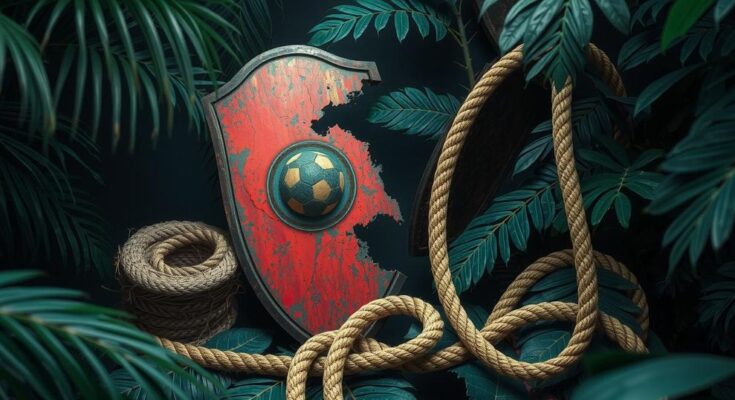The Democratic Republic of Congo’s military is currently failing to counter the M23 militia due to its internal weaknesses characterized by corruption and lack of resources. The military’s inability to effectively combat the militia’s swift advance has left President Tshisekedi increasingly isolated. External support for M23 from Rwanda complicates the conflict further, revealing the multifaceted challenges that the Congolese government faces.
The conflict in eastern Congo has spotlighted the significant weaknesses of the Democratic Republic of Congo’s military, which is notorious for corruption and infighting. The military’s personnel face chronic underfunding, lack of effective armament, and are influenced by various internal factions more concerned with personal gain than national security. These issues have hindered the military’s ability to combat the M23 militia effectively, which has recently captured critical territories including major cities and airports.
Despite President Félix Tshisekedi’s efforts to reinforce the military in anticipation of M23’s aggression, the strategy has faltered amid a swift advance by the militia. As a result, President Tshisekedi finds himself increasingly isolated, with diminishing domestic support and stalled peace negotiations with neighboring countries. This decline in military effectiveness also raises questions about the president’s own authority and stability amid fears of a coup.
The M23 militia receives backing from Rwanda, which has reportedly equipped and trained its fighters, undermining Congo’s military efforts. While Rwanda acknowledges the presence of its troops within Congo’s borders, it denies having command over the M23 forces. This external support highlights the dual challenges facing the Congolese military: external aggression and internal dysfunction.
In remarks made to The New York Times, President Tshisekedi attributed the army’s challenges to foreign infiltration and criticized past leaders for neglecting necessary reforms to rectify this issue. His statement reflects a growing frustration with the inability to secure control within the army and the increasing complexity of the conflict at hand.
In summary, the Democratic Republic of Congo’s military struggles to combat the M23 militia due to deep-rooted issues of corruption, lack of resources, and internal divisions. The emerging conflict underscores significant vulnerabilities exacerbated by external influence, particularly from Rwanda, and highlights the precarious political situation facing President Tshisekedi. This turmoil calls for urgent reforms to address military weaknesses and restore stability in the region.
Original Source: www.nytimes.com




